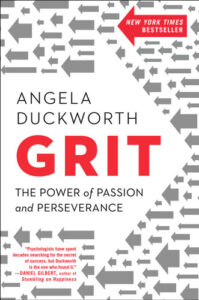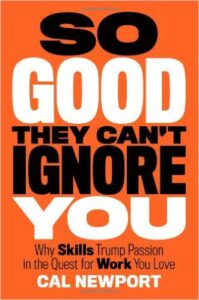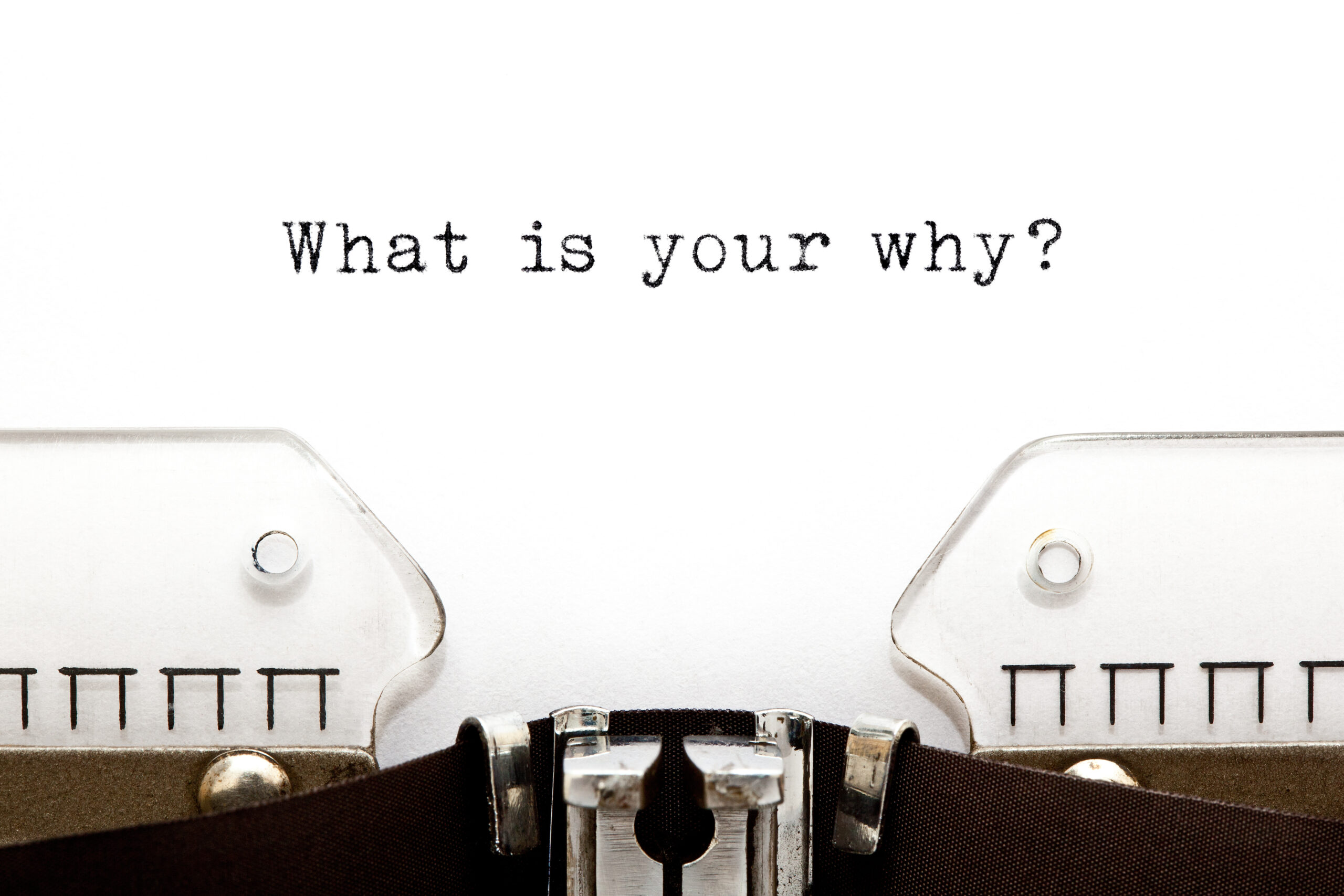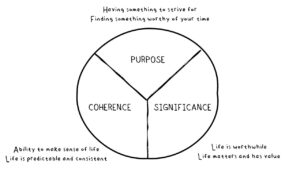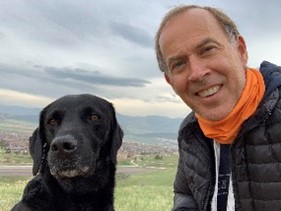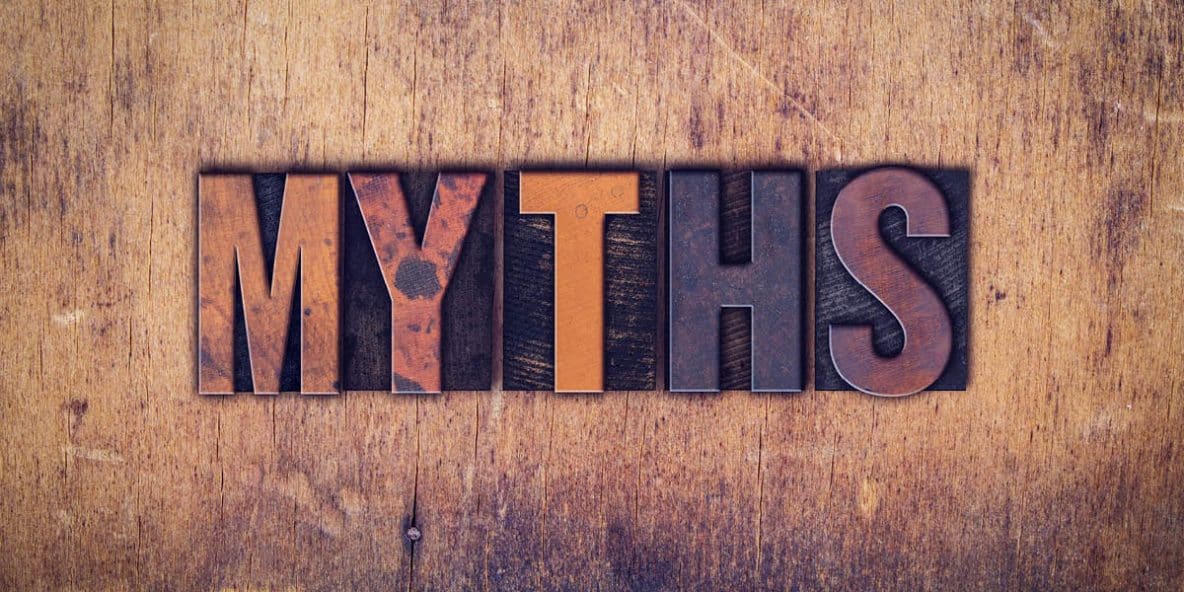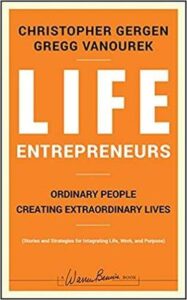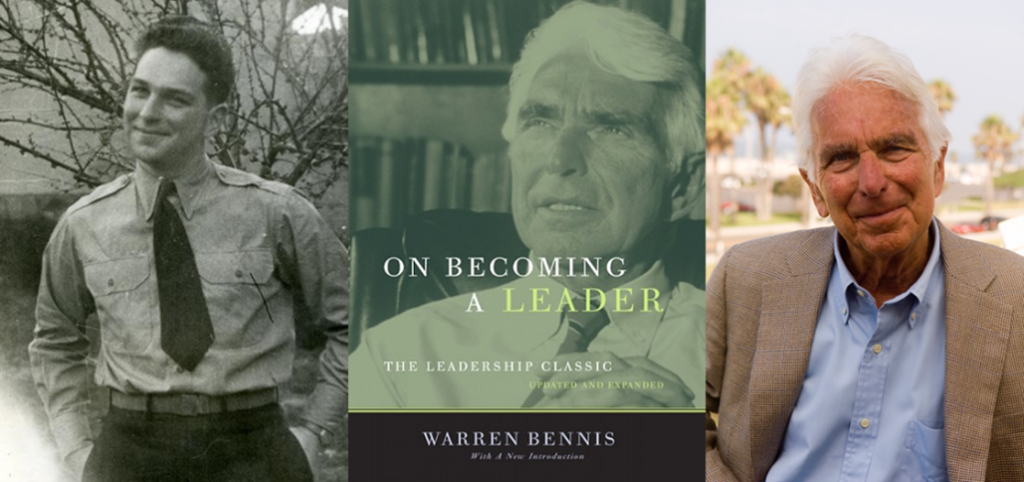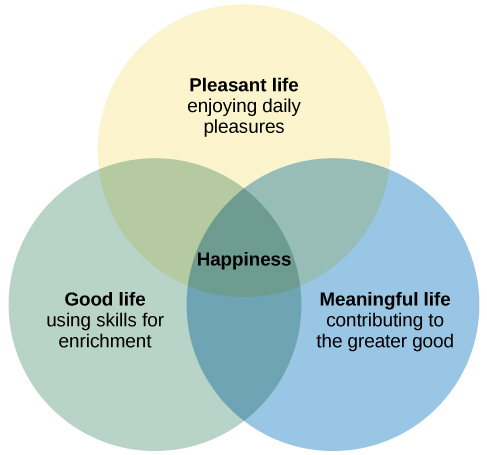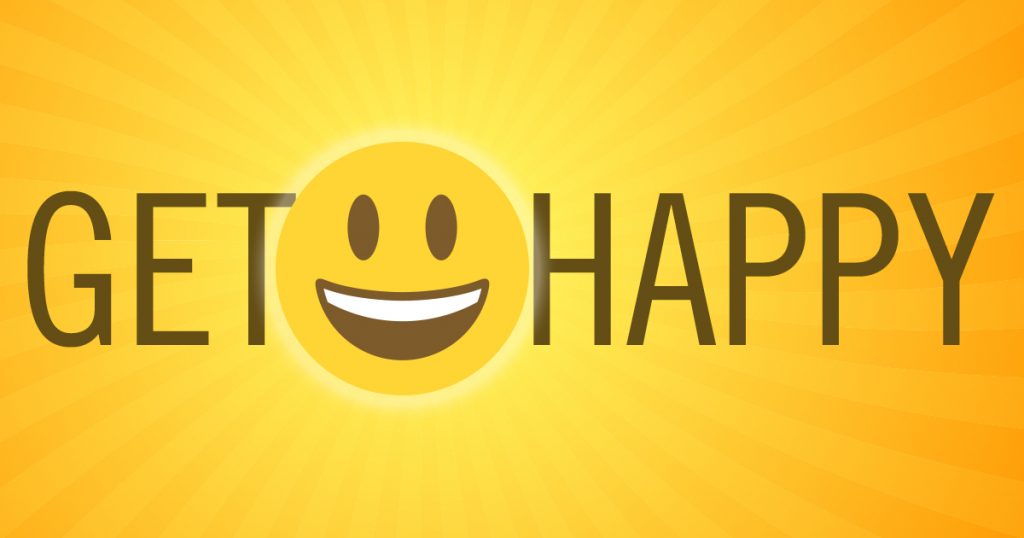For so long we’ve wished for it. Worked hard for it. Suffered for it. Our dream.
We clawed and climbed for it. Sacrificed for it.
One day, after all the trials and tribulations, we’re finally there. The treasure chest of our dreams is before us. We almost can’t believe it.
We pause, relishing the moment, and then open it.
What we find is astonishing.
It’s empty.
Empty.
EMPTY???
How can that possibly be?
But it is. The treasure chest is empty.
What we’ve encountered is the “arrival fallacy”—the assumption that once we accomplish a major goal, we’ll get lasting happiness or satisfaction. It’s a lie.
Examples All Around Us
We see it all around us.
We see it in former athletes.
Think of Michael Phelps, the most decorated Olympic athlete of all time, with an astonishing 28 medals, 23 of them gold. He was World Swimmer of the Year eight times and broke 29 individual world records. He’s considered the greatest swimmer of all time—and perhaps one of the greatest athletes of all time.
After all that, he found himself in a depression after retiring from swimming and revealed that he had contemplated suicide. Is this it?
Think of Tom Brady. He won seven Super Bowl championships and was the most valuable player of the Super Bowl five times. When somebody asked him during his storied career which Super Bowl ring is his favorite, Brady replied, “The next one.”
Here’s Brady talking to journalist Steve Kroft:
Brady: Why do I have three Super Bowl rings, and still think there’s something greater out there for me? I mean, maybe a lot of people would say, “Hey man, this is what is.” I reached my goal, my dream, my life. Me, I think: God, it’s gotta be more than this. I mean this can’t be what it’s all cracked up to be. I mean I’ve done it. I’m 27. And what else is there for me?
Kroft: What’s the answer?
Brady: I wish I knew. I wish I knew….
We see it in our accomplishments, like a promotion or raise.
We’ve been working so hard, and we believe those achievements will transform our lives for the better. Yet we’re disappointed when we see that the reality is often far different from our expectations.
“After a lifetime of trying, I finally had a book hit number one on the New York Times bestseller list.
It made me really happy… for about ten minutes.” -author
We see it in retirees.
After looking forward to finally enjoying life after putting so much time into their work, many recent retirees hit the golf course or the beach and wonder, Is this it? According to researchers, the prevalence of depression among retirees is substantially higher than that of the overall older adult population. (1)
We see it in former executives.
Hubert Joly had remarkable success early in his business career. After making partner at McKinsey & Co. by age 30, he led EDS France, turned around Vivendi’s video games divisions, and became CEO of Carlson-Wagonlit Travel. He felt that he had reached the top of a mountain. Unfortunately, it didn’t live up to the hype. First, it came with all sorts of new problems and hassles. And second, it felt empty.
“The mountaintop felt desolate. The idea of success I had been chasing turned out to be hollow,
and I felt disillusioned and empty.”
-Hubert Joly, former chairman and CEO, Best Buy
We see it everywhere.
We see it in parents whose children have left the home. In retired military personnel. We even see it in kings.
Take the example of Abd al-Rahman III, the emir and caliph of Córdoba in southern Spain in the 10th century. Around age 70, he was reflecting on a life of remarkable worldly success: “I have now reigned above 50 years in victory or peace; beloved by my subjects, dreaded by my enemies, and respected by my allies.” He thought about his incredible riches and all his honors, including the power and pleasure that waited on his call, as he described it. What did all of it add up to?
“I have diligently numbered the days of pure and genuine happiness which have fallen to my lot.
They amount to 14.”
-Abd al-Rahman III, the emir and caliph of Córdoba
Is this it? Fourteen days of happiness from 50 years of living in the best of circumstances?
Alas, getting what we want can be unsatisfying or even disappointing. It can feel like less than we imagined, not as Earth-shattering as we hoped. Why?
What’s Going On?
Things are good, but we feel surprisingly empty. We wonder why we’re not happy and fulfilled. Maybe we lack motivation or enthusiasm for things. We feel purposeless. Maybe we lack energy, or we’ve lost interest in activities that we once found engaging.
There are a number of factors at work here:
Feeling lasting satisfaction is highly unlikely due to our evolutionary biology.
Given our biological makeup, we have an urge to keep pursuing more (lest we run out of food or shelter) and an inability to maintain any strong emotional state. We have a strong wanting drive that’s deeply baked into our nature.
A big part of what’s going on here is the frustrating but very real phenomenon of hedonic adaptation (also called the hedonic treadmill), in which we become rapidly accustomed to changes in our circumstances and then settle into that new baseline as if nothing had occurred. We’re wired biologically to return to homeostasis. Whenever we experience change, our mind and body work hard to re-equilibrate. So, we return to the baseline. It’s the way we’re wired. And still we wonder: Is this it?
Our brain is working against us.
When we’re working toward something, our brain releases dopamine, a neurotransmitter associated with pleasure, motivation, and learning, in anticipation of the reward of achieving it. We get dopamine hits as we make progress toward the goal. What happens when we achieve our goal? Those dopamine hits fall away. (Ouch.) The result? We bounce from goal to goal in an endless pursuit of those hits, almost like chasing our tail.
When we reach the top, we may stop learning, growing, and challenging ourselves.
That’s a recipe for stasis and complacency. We also need variety to keep things interesting.
On our way to the top, we may have neglected important relationships in our lives.
That Faustian bargain may come back to haunt us.
After we’ve accomplished a goal, we can lose our sense of identity and purpose.
We have to reorient our focus toward something new, and perhaps redirect how we perceive ourselves. Not easy. (See my article, “Is Your Identity Too Wrapped up in Your Work?”)
Sometimes, the reality we experience at the top is a far cry from the dream we had.
Sure, there are likely to be perks of that promotion and raise, but there are also likely to be new hassles. Longer hours. More responsibilities. More cut-throat politics.
Contributing Factors
Often, there are contributing factors that compound the problem of disappointment. Here are some examples of common traps we fall into that make things worse.
Going for other people’s goals.
If we were exerting all that effort to please our parents or impress our neighbors or boss, it’s no wonder we find ourselves less than fulfilled at the end of it
Falling into the “expectations trap.”
When there’s a gap between our current versus expected life satisfaction, and when we become attached to our expectations, we feel disappointment, even though our life may be going well.
Engaging in unfair and unhelpful comparisons.
Many of us fall into the comparison trap fairly often—comparing ourselves to others on things that tend to be fairly superficial. Even worse, we tend to compare ourselves to unrealistic standards (i.e., the most outwardly successful or beautiful). It’s a recipe for disappointment.
Believing the common myths about happiness and success.
For example, the trap of believing that:
- happiness comes from improving our circumstances
- we’ll be happy when we’re successful
- we’ll be happy when we have certain things
- happiness is a destination
- success is the point of life
- we can measure success in dollars, possessions, and other things that bring us status and attention (2)
(See my article, “The Most Common Myths about Happiness.”)
Never feeling successful enough.
We can always do more. There’s always more to chase. (Back to the hedonic treadmill.)
Drifting away from ourselves in the pursuit of success.
We see the disconnection between who we really are and what we’re doing, and we feel it.
Drifting away from our family and friends in the single-minded pursuit of our success.
Meanwhile, it’s precisely those relationships that lead to the most enduring happiness and life satisfaction. We’ve been sabotaging them on our way to the top.
What to Do About It
Though we’re wired this way, that doesn’t mean we’re helpless against this phenomenon and resigned to disappointment. Here are 15 things we can do to address it.
1. Learn to value the process and the journey instead of fixating on the end result.
Focusing only on the end result makes little sense. Are we supposed to endure four years of high school or college just so we can enjoy a two-hour ceremony? Suffer through months of training only so we can enjoy the instant it takes to cross the finish line?
2. Diversify our sources of happiness.
Make sure we have several irons in the fire when it comes to things that motivate us and bring us enjoyment. That way, when we’ve achieved a goal, we’re less likely to experience that drop-off of happiness and motivation, because we have other things that enrich our lives.
3. Make plans for what will follow our major initiatives.
Again, that will help us have something to look forward to. Otherwise, we may be destined to fall off the satisfaction cliff.
4. Mine the experience for learnings.
Instead of expecting to be lastingly happy from accomplishing something, review the experience for learning and growth. Think about what we liked about the experience—and what we didn’t. This will help us extract nuggets that we can apply as we redirect our focus toward other activities and new goals.
5. Recenter.
Sometimes when we’re in hot pursuit of a goal, we can lose ourselves in all that hustle. We become the single-minded, obsessed goal achiever and let other important parts of our life suffer or fall away. Now’s a good time to recenter and come back to the fullness of living whole.
6. Rediscover purpose.
Sometimes, when we’re pursuing a goal, we lose sight of our deeper why, our purpose. Our goal-pursuit is about ego, prestige, status, or vanity instead of about something bigger than ourselves like connection, service, or spirituality.
7. Give back.
If we’re caught up in disappointment about the lack of lasting happiness after a big accomplishment, it’s a sign that we’re too focused on ourselves. Change the focus to helping others. For example, ask the following:
What did we learn along the way that we can share with others? How can we teach it or otherwise give back to make the accomplishment even more meaningful and impactful?
German-American psychoanalyst Erik Erikson coined the term “generativity” and described it as a stage in our psychosocial development characterized by “a concern for establishing and guiding the next generation.” The idea is that, as we get older, we start focusing less on ourselves and more on nurturing and guiding young people as well as fostering the success of future generations. It resonates with what Swedish gerontologist Lars Tornstam called “gerotranscendence,” which is a shift in our understanding of ourselves and our role in things as we age, from a materialistic view of the world to a more transcendent one, with enhanced feelings of connection with past generations and lower interest in superficial social interaction.
8. Learn to savor life now.
This means noticing what’s going on around us and fully feeling positive emotions. In the process, we extend them and help encode them in our memory banks.
9. Realize that we never really arrive while we’re living.
Living isn’t about reaching some metaphorical finish line. Do we really believe that life is a race? Living isn’t about reaching some chosen level of success. Do we really believe that success is the point of life?
10. Reinvest in learning and growing.
Take a course. Read books. Listen to podcasts. Watch TED talks. Learn a new skill or language. Adopt a creative practice such as painting or poetry.
11. Establish a spiritual practice, ideally daily.
Engage in prayer, worship, contemplation, meditation, or yoga.
12. Cultivate a gratitude practice.
Return regularly to the things we have and to the things we’re thankful for. Being grateful for all we have is much wiser than expecting achievements to keep us continually satisfied.
13. Craft our work and leisure activities to facilitate “flow” states.
When in flow, we’re so absorbed in something that we lose track of time. In such a state of optimal experience, dissatisfaction is impossible.
14. Build more of our strengths and passions into our life and work.
Figure out what we’re good at (our strengths) and what we love (our passions) and creatively bake them into the fabric of our days.
15. Focus on everyday progress toward an ever-renewing set of meaningful goals and worthy activities.
That’s wiser than placing all of our hopes on ONE BIG ATTAINMENT.
As always, we’re wise to seek professional help from a coach, mentor, or therapist if we feel stuck in a rut or caught in a loop of dissatisfaction.
Conclusion
Some may conclude from contemplating the arrival fallacy that there’s no point in setting and pursuing goals. While understandable, that’s a mistake. We should continue setting and pursuing goals but change our focus from a fixation on goal achievement to enjoying (and mastering) the process along the way. We can change the focus from winning or achieving to who we become in the process of pursuing goals. Indeed, pursuing goals can be energizing, fun, and fulfilling. We can enjoy the process of learning, growing, and discovering how to address challenges along the way. Lasting, sustainable happiness is about good living day in and day out, teed up by intentional choices about what matters, not about achieving certain levels of success.
In the end, maybe we should stop chasing things like happiness, success, wealth, beauty, fame, power, prestige, comfort, and pleasure. These all have their merits, of course. But they’re destined to disappoint in the final analysis.
Why not focus instead on living a good life—on intentionally crafting a life we love and that fits our nature? A life of health, connection, and service. On crafting a life of purpose, learning, growth, integrity, and wisdom. A life of joy and savoring. And a life in which we work to make things better, with and for others.
Back to the treasure chest.
Maybe we were looking for the treasure in the wrong place? The treasure was with us all along, but we were so focused on the prize at the end that we missed what was before us.
Will we keep repeating the mistake?
Tools for You
- Traps Test (Common Traps of Living) to help you identify what’s getting in the way of your happiness and quality of life
- Quality of Life Assessment to help you discover your strongest areas and the areas that need work and then act accordingly
- Personal Values Exercise to help you clarify what’s most important to you
Related Articles
- “Beware the Disease of More”
- “Are You Feeling Empty Inside?”
- “Is Your Identity Wrapped Up Too Much in Your Work?”
- “Are You Trapped by Success?”
- “Are We More Materialistic than We’d Like to Admit?”
- “Are We Numbing Our Lives Away?”
- “The Trap of Dissatisfaction”
- “The Perils of ‘Climbing Mode’ in Our Career”
- “The Comparison Trap”
Postscript: Inspirations
- “Is there anything in life so disenchanting as attainment?” -Robert Louis Stevenson, Scottish novelist and poet
- “As the days wore on, there was a part of me that felt empty… I had always believed that when you win a championship you’re transported to some new, exalted place. What I realized was that you are the same person you were before, and that if you are not content with who you are, a championship, or any accomplishment, isn’t going to change that.” -Ray Allen, NBA basketball star
- “So I won an Olympic gold. And as I climbed down from the podium, the only thought I could think was, ‘What the hell do I do now?’ It was awful, absolutely terrifying. It was like death—the worst feeling I’d ever had.” -a client of Dr. Martha Beck, Harvard-trained sociologist, coach, and author, as told in The Way of Integrity
- “When I was younger, I spent too much time obsessing over what would make me feel better or how I imagined a certain set of circumstances would magically transform my life and career.” -Judith Viorst, writer and author of Alexander and the Terrible, Horrible, No Good, Very Bad Day
- “I can’t get no satisfaction.” -The Rolling Stones
- “Arrival fallacy is this illusion that once we make it, once we attain our goal or reach our destination, we will reach lasting happiness.” -Tal Ben-Shahar, teacher and writer
- “People haven’t found meaning in their lives, so they’re running all the time looking for it. They think the next car, the next house, the next job. Then they find these things are empty, too, and they keep running.” -Mitch Albom, Tuesdays with Morrie
- “Everyone has dreams, and they beckon with promises of sweet, lasting satisfaction if you achieve them. But dreams are liars. When they come true, it’s … fine, for a while. And then a new dream appears.” -Arthur Brooks, “How to Want Less,” The Atlantic
- “The funny thing about having all this so-called success is that behind it is a certain horrible emptiness.” -Sam Shepard, actor and playwright
- “To live for some future goal is shallow. It’s the sides of the mountain that sustain life, not the top.” -Robert Pirsig, philosopher and writer
- “Never let success hide its emptiness from you, achievement its nothingness…. Your duty, your reward—your destiny—are here and now.” -Dag Hammarskjöld, Swedish diplomat
- “Happiness is not a mental state that can be permanently won…. By misunderstanding happiness, the modern conception increases the likelihood of disappointment.” -Nat Rutherford, University of London
- “Those only are happy who have their minds fixed on some object other than their own happiness: on the happiness of others, on the improvement of mankind, even on some art or pursuit followed not as a means, but as itself an ideal end. Aiming at something else, they find happiness by the way.” -John Stuart Mill, English philosopher
- “We need the sweet pain of anticipation to tell us we are really alive.” -Albert Camus, French philosopher and author
- “…our natural state is dissatisfaction, punctuated by brief moments of satisfaction…. The secret to satisfaction is not to increase our haves—that will never work (or at least, it will never last). That is the treadmill formula, not the satisfaction formula. The secret is to manage our wants. By managing what we want instead of what we have, we give ourselves a chance to lead more satisfied lives.” -Arthur Brooks, “How to Want Less,” The Atlantic
- “The late-life crisis… really is a thing. Recent research has found that as many as one in three people over 60 will experience it in some form. The late-life crisis is characterized by dissatisfaction; a loss of identity; an expectations gap and the feeling that life has peaked, so it’s all downhill from here.” -Richard Leider and David Shapiro, Who Do You Want to Be When You Grow Old? The Path of Purposeful Aging
- “Don’t let your happiness depend on something you may lose.” -C.S. Lewis, British scholar, writer, and lay theologian
- “Provide purses for yourselves that will not wear out, a treasure in heaven that will not be exhausted, where no thief comes near and no moth destroys. For where your treasure is, there your heart will be also.” -Luke 12:33-34 NIV
References
(1) Pabón-Carrasco M, Ramirez-Baena L, López Sánchez R, Rodríguez-Gallego I, Suleiman-Martos N, Gómez-Urquiza JL. Prevalence of depression in retirees: a meta-analysis. Healthcare. 2020;8(3):321
(2) Material things aren’t likely to boost our happiness in a sustained way, according to the research. What’s more, materialistic people tend to be less happy than others. They tend to have fewer positive emotions and lower life satisfaction levels, on average, not to mention more anxiety, depression, and substance abuse. (Source: Dacher Keltner and Jason Marsh, “How Gratitude Beats Materialism,” Greater Good Magazine, January 8, 2015.)
+++++++++++++++++
Gregg Vanourek is a writer, teacher, and TEDx speaker on personal development and leadership. He is co-author of three books, including LIFE Entrepreneurs: Ordinary People Creating Extraordinary Lives (a manifesto for integrating our life and work with purpose, passion, and contribution) and Triple Crown Leadership: Building Excellent, Ethical, and Enduring Organizations (a winner of the International Book Awards). Check out his Best Articles or get his monthly newsletter. If you found value in this article, please forward it to a friend. Every little bit helps!








